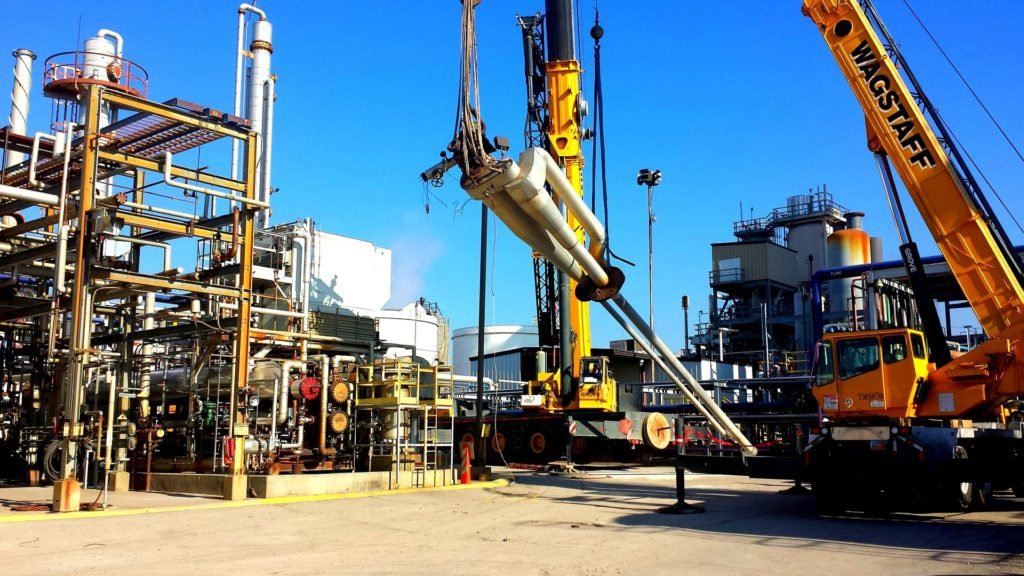The oil and gas industry accounts for 90 per cent of revenue in gas and oil-exporting countries. According to the US Department of Energy, and the Oil and Gas Journal, the continent produces a total of 10 million BOE/D of oil. This shows that natural resources like oil have realized enormous growth over the years. African oil producers should, therefore, improve infrastructure like the pipeline system. This will make the industry soar, thus bring more returns on oil firms’ investments. Other factors that would boost oil and gas production, would be improved transport systems and excellent prevailing market conditions. A corruption-free society that channels the resources to the production and refinery of crude oil is paramount. Let’s look at how far the oil and gas industry has come in the African countries.
Nigeria
Nigeria is the largest oil and gas refiner and producer in Africa. Its FDI (foreign direct investment) is worthwhile proving it to be an established oil and gas production economy. However, challenges are still there making it hard for the oil markets to thrive. Solving the challenges of the transport sector and economic conditions could shoot the domestic production to 31 per cent between 2017 and 2023. The government intends to privatize 10 power stations to boost production and ensure effective and uninterrupted power supply in Nigeria. The Nigerian National Petroleum Corporation (NNPC) is a good example of an oil firm in Nigeria. It was founded in 1977 and headquartered in Abuja. NNPC is the 24th biggest oil firm in the world and statistics show that it produces 1.4 million barrels a day.
Ghana
Ghana is the fastest-growing oil producers in the region. In late 2018, it licensed 6 blocks in the offshore, thus promoting exploration in the region. The Petroleum Bill that was passed in 2016 will improve the regulatory environment and remove all the exploration barriers. Also, the winning of the border dispute between Cote d’Ivoire and Ghana in September 2017 brightens hopes for more oil prospects in this region. The only constraints in the Ghana oil and gas industry are the limited pipeline infrastructure and low refining capacity.
Uganda
According to a 2006 research, Uganda has the fifth largest oil resources in the region. Production of oil is set to start in 2021 after the completion of the construction of a pipeline from Hoima (Uganda) to Tanga (Tanzania) which began in 2018. The pipeline will facilitate transportation from the oil plants to the consumers.
Tanzania
Tanzania is the leading producer of natural gas in the region among its other peers in the oil and gas sector. Though the export of liquefied natural gas has been delayed for over 5 years due to inadequate onshore facilities, Tanzania’s proximity to Asian markets gives it an edge over other oil and gas producers in the region. If the infrastructure is improved, Tanzania has an already established market for its oil.
Mozambique
Mozambique has the largest untapped oil reserves in the region. Recently it has been proven that coral floating liquefied natural gas in the Rovuma Basin and the Anadarko Petroleum project are complex resources which are projected to start production in 2022. Once the 2 projects pick, Mozambique will be in a position to exploit this rare natural resource.
Gabon
Gabon’s oil had reduced since 2010 but in 2016 after re-joining OPEC thus revamping the legislation, foreign investments in oil firms are expected to rise. This, in turn, will make the licensing flexible and competitive with other oil resources in the region. Gabon is set to regain its lost glory of a major oil producer in Africa in the past years.
Equatorial Guinea
Equatorial Guinea remains the second-largest natural gas producer in the region. In 2017, a released report indicated that plans are underway to establish a natural gas mega-hub that will link the onshore production with offshore production facilities. After the mega-hub is all set, Equatorial Guinea will exploit its oil deposits with fewer challenges.
Congo-Brazzaville
Crude production in Congo is expected to rise after licensing of 18 blocks in efforts to revamp the diminishing oil and gas resources in the region. Also, by joining OPEC in 2018, Congo will easily increase its investments and projects (which are now going online) in the oil industry. The country’s increasing population has seen the rise in consumption of refined products by 18 per cent between 2010 and 2017.
Related: What the noteworthy seaward gas discovery implies for South Africa’s vitality future


















